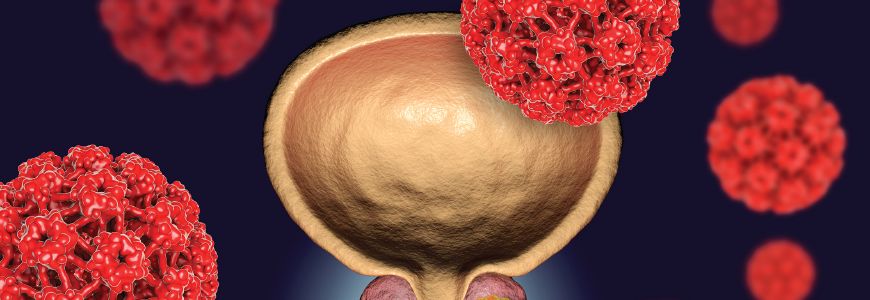
To refer a patient, call the Duke Cancer Center GU New Patient Coordinator at 919-668-8108. For rapid 48-hour appointment access, call 1-866-DUKE123.
Cary N. Robertson, MD, a urologic oncologist at the Duke Cancer Institute (DCI) Center for Prostate and Urologic Cancers, recently performed the 200th case of high-intensity focused ultrasound (HIFU) therapy to treat prostate cancer at Duke Health. Robertson has utilized various generations of HIFU devices since 2006 and has performed FDA-cleared HIFU procedures since 2016. Today, he’s one of the most experienced urologic surgeons in the Southeast U.S. using the latest HIFU focal therapy techniques.
“Focal therapy is an emerging concept. The original application was for whole-gland therapy, but as site-specific treatments for other cancers became widely accepted, prostate cancer followed suit. With HIFU, we treat the exact tumor location and minimize the impact on surrounding healthy tissues,” says Robertson.
Advancements in Focal Therapy
A growing body of evidence supports treating the index lesion with HIFU focal therapy to change the natural course of the disease and potentially cure it.
“We know this concept is viable, and we’re applying our energies to exploring it,” says Robertson. “Patients with small, well-defined tumors and less aggressive disease, who are good candidates for focal therapy, benefit from this initial minimally-invasive treatment option with fewer side effects.”
“Breakthroughs in advanced MRI and ultrasound fusion prostate biopsies have also enhanced the efficacy of focal therapy treatment,” says Duke urologic oncologist Michael B. Rothberg, MD.
The team collaborates with Rajan T. Gupta, MD, director of imaging at the DCI Center for Prostate and Urologic Cancers, to improve the detection, characterization, and targeted treatments using cutting-edge imaging techniques.
Comprehensive Focal Therapies
Duke is one of the few academic medical centers in the U.S. with expertise in multiple focal therapies for prostate cancer, including:
• Cryotherapy
• Irreversible electroporation (IRE)
• Gold nanoshell-localized photothermal ablation
• HIFU
“Our team’s breadth of experience is unique. We frequently collaborate to determine the best therapy for each patient,” says Robertson.
While Robertson specializes in HIFU, Rothberg adds electrical energies to his areas of expertise with specialized training at the NIH. Esteemed urologic oncologist Thomas J. Polascik, MD, an internationally respected cryotherapy expert, started Duke’s focal therapy program in 2006.
“Duke went from offering two focal therapy modalities to now utilizing five energies. Most other programs offer one if not two at most,” says Polascik.
Personalized Approach
Focal therapy is not for all patients, explains Rothberg and Robertson.
Patients with very low-risk disease may qualify for active surveillance. “Small tumors can be indolent and safely observed,” says Rothberg. “Whereas patients with high-grade disease, an enlarged prostate over 60 cc, extensive gland calcifications, or multifocal locations need aggressive treatment.”
Patients’ goals, lifestyle, and psychosocial factors also influence treatment recommendations. “Focal therapy is optimal for qualifying patients who want to preserve sexual and urinary function. They also must be amenable to continuous monitoring,” says Robertson.
Focal therapy requires routine PSA tests, biopsies, and potentially a second treatment or more aggressive therapy down the line if the disease persists.
“Current technology gives us great outcomes, but we’re researching how to optimize energy treatments even more effectively,” says Robertson.